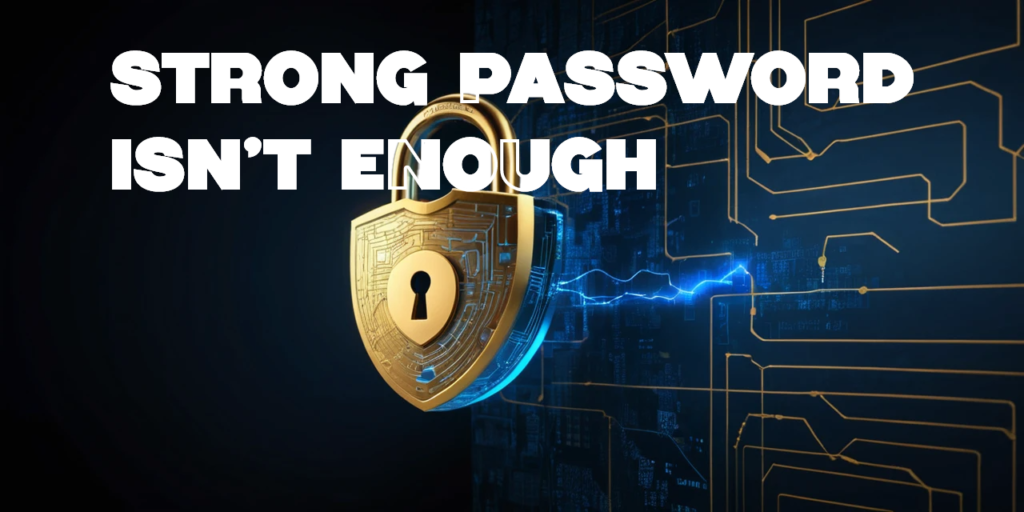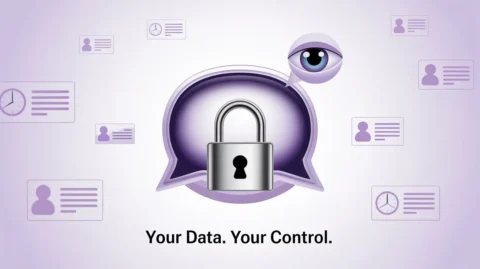Introduction
Think your account is safe because you have a strong password? Think again. While creating passwords with a mix of letters, numbers, and symbols is essential, it doesn’t guarantee complete protection. Accounts can still be compromised due to vulnerabilities beyond password strength. This article explores how even the strongest passwords can fail and what you can do to enhance your strong password security.
Table of Contents
Why Strong Passwords Aren’t Enough
A strong password is just one layer of security. Cybercriminals use advanced techniques to bypass even the most complex passwords. Here are some common ways your account could be compromised:
1. Keyloggers: The Silent Threat
Keyloggers are malicious software or hardware that record your keystrokes. Once installed on your device, they capture everything you type, including your strong password security.
- How it happens: Malware infects your computer through phishing emails, malicious downloads, or unsafe websites.
- Prevention tips: Use reliable antivirus software and avoid downloading files from untrusted sources. Regularly scan for malware and ensure your operating system is updated.
Types of Keyloggers:
- Software Keyloggers: These are programs that run on your computer, often hidden from view. They can be installed via malicious software or by someone with physical access to your device.
- Hardware Keyloggers: These are physical devices that can be attached between your keyboard and computer. They are harder to detect but require physical access to install.
2. Phishing Attacks
Phishing schemes trick users into providing their credentials on fake websites that mimic legitimate ones.
- Example: You receive an email claiming to be from your bank, asking you to log in via a link that leads to a fraudulent site.
- Prevention tips: Always verify URLs and avoid clicking on suspicious links. Look for HTTPS in the URL and check for spelling mistakes in the domain name.
Types of Phishing Attacks:
- Spear Phishing: Targeted attacks where the attacker has some information about you, making the email seem more legitimate.
- Whaling: Similar to spear phishing but targets high-profile individuals like executives.
3. Public Wi-Fi Vulnerabilities
Logging in over open Wi-Fi networks can expose your credentials if the connection isn’t encrypted. Hackers can intercept data transmitted over unsecured networks.
- Prevention tips: Use a VPN when accessing sensitive accounts on public Wi-Fi to protect your strong password security. VPNs encrypt internet traffic, making it difficult for hackers to intercept data.
How VPNs Work:
- Encryption: VPNs encrypt your data, ensuring that even if intercepted, it cannot be read without the decryption key.
- IP Masking: VPNs hide your IP address, making it harder for hackers to identify your location or device.
4. Weak Security Questions
Some accounts use easily guessable security questions for recovery (e.g., “What’s your pet’s name?”). If this information is available online or on social media, attackers can exploit it.
- Prevention tips: Use obscure answers or treat security questions like additional passwords. Avoid using real answers that could be found online.
Best Practices for Security Questions:
- Use False Answers: Provide answers that are not true but easy for you to remember.
- Avoid Common Questions: Opt for less common questions if possible.
5. Physical Access
Leaving your device unlocked or logged in can allow someone nearby to access your accounts without needing your strong password security.
- Prevention tips: Always log out of accounts and lock your devices when unattended. Use a password or PIN to lock your device.
Additional Measures:
- Screen Savers: Enable screen savers with password protection to lock your device after a period of inactivity.
- Biometric Security: Use fingerprint or facial recognition for an additional layer of security.
6. Sharing Passwords or Being Watched
Sharing passwords with friends or family may seem harmless until trust is broken. Additionally, someone observing you type your password (shoulder surfing) can memorize it for later use.
- Prevention tips: Keep passwords private and be cautious of your surroundings when logging in. Avoid typing passwords in public places.
Shoulder Surfing Prevention:
- Use a Privacy Screen: Apply a privacy screen to your monitor to limit viewing angles.
- Be Aware of Your Environment: Avoid typing sensitive information in crowded areas.
7. Data Breaches Beyond Your Control
Even if you follow all best practices, vulnerabilities in the services you use could lead to breaches where attackers steal stored passwords.
- Prevention tips: Use unique passwords for each account and enable two-factor authentication (2FA). Monitor your accounts for suspicious activity.
Understanding Data Breaches:
- Types of Breaches: Data breaches can occur due to poor storage practices, outdated software, or insider threats.
- Response to Breaches: If a service you use experiences a breach, change your password immediately and monitor your account activity closely.
How to Strengthen Your Account Security
While strong password security are important, combining them with additional measures significantly enhances protection:
- Enable Two-Factor Authentication (2FA): Adds an extra layer of security by requiring a second verification step (e.g., SMS code or authenticator app).
- Use Password Managers: Generate and store complex passwords securely without needing to remember them all.
- Regularly Update Passwords: Change passwords periodically to reduce the risk of long-term exposure.
Advanced Security Measures:
- Multi-Factor Authentication (MFA): Requires multiple forms of verification, such as a password, fingerprint, and SMS code.
- Passwordless Authentication: Uses biometric data or other non-password methods for secure login.
Conclusion
Even the strongest password isn’t foolproof against modern cyber threats like keyloggers, phishing attacks, and public Wi-Fi vulnerabilities. By understanding these risks and implementing additional security measures such as 2FA and VPNs, you can better protect your accounts from compromise and enhance your strong password security.





locksmithstrainingcourse.co.uk
Keep on working, great job!
site
Your style is really unique in comparison to other people I
have read stuff from. Many thanks for posting when you’ve
got the opportunity, Guess I will just book mark this blog.
www.deadbeathomeowner.com
What’s up, all is going perfectly here and ofcourse every one is sharing information, that’s genuinely fine,
keep up writing.
Osteofast состав
Do you mind if I quote a couple of your posts as long as I provide credit
and sources back to your blog? My blog is in the exact same niche as yours
and my visitors would certainly benefit from a lot of the information you provide here.
Please let me know if this ok with you. Thanks a lot!
MT
Sure!